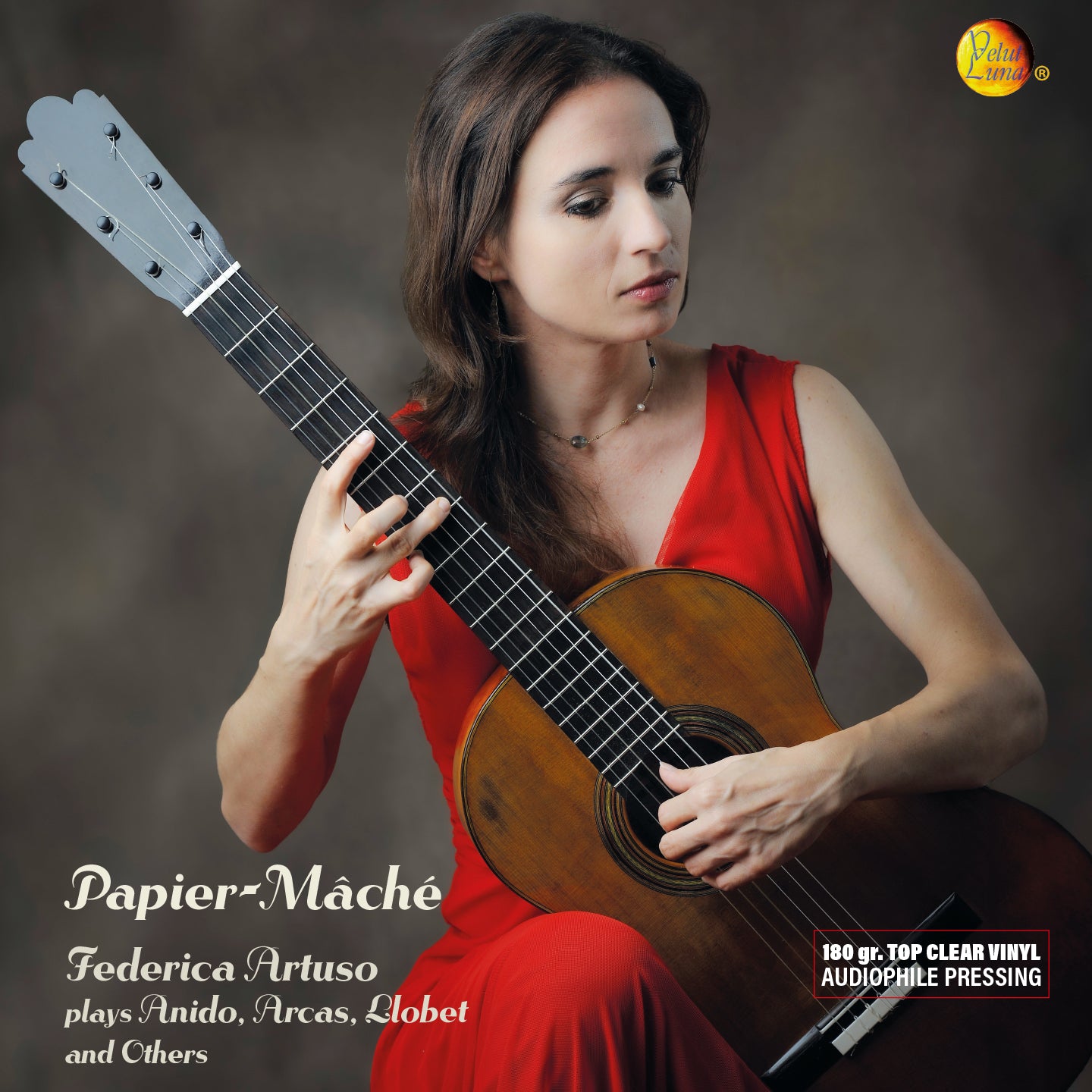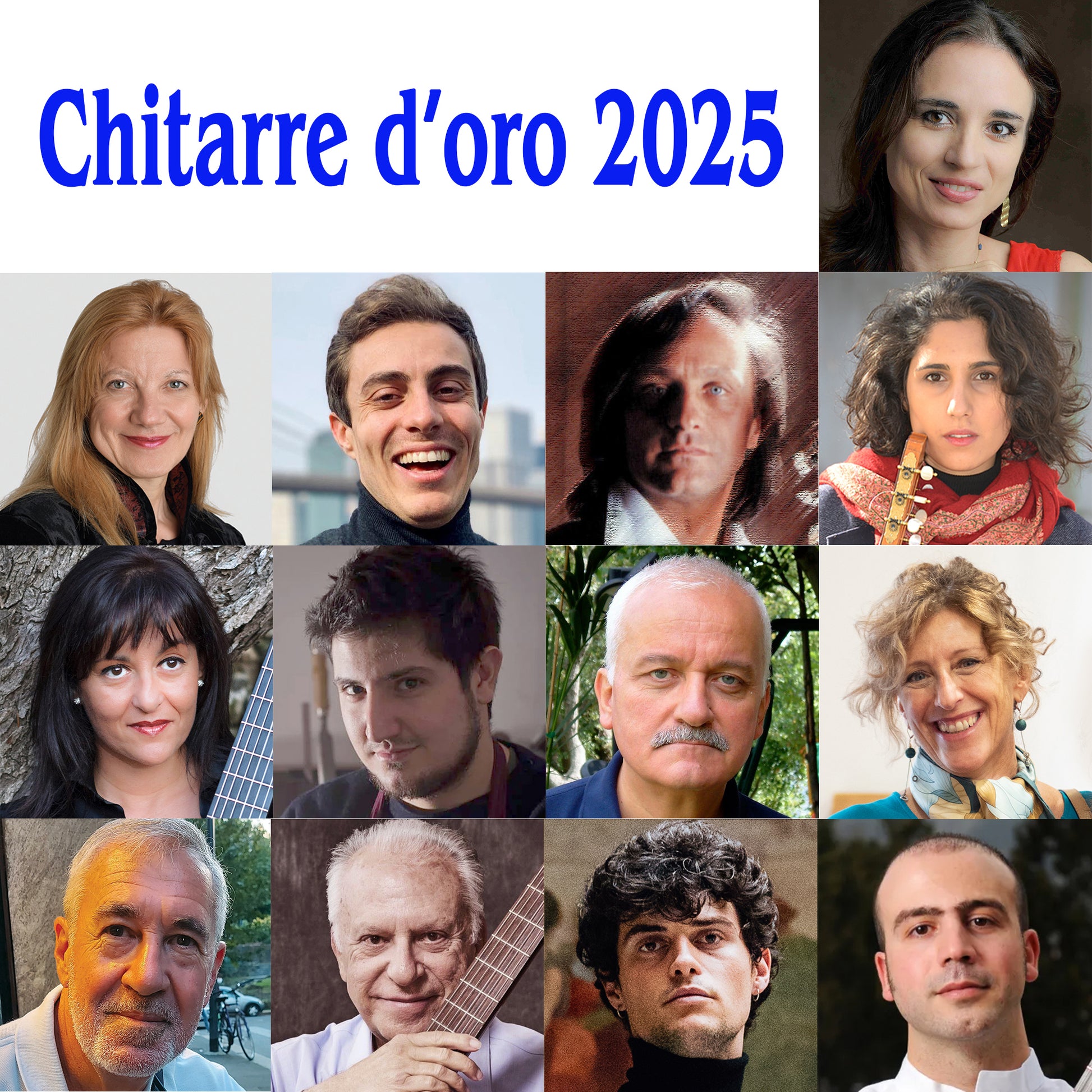Velut Luna
Papier-Maché - Federica Artuso
Papier-Maché - Federica Artuso
Genere musicale:
Disponibile
Impossibile caricare la disponibilità di ritiro
Papier-Maché (CVLD365)
Disponibile in:
- LP Top Clear Vinyl+ FILE HD
- CD Gold
- File HD
María Luisa Anido (1907- 1996)
01 - Aire norteño 1:23
02 - El misachico 3:45
03 - Minueto del “Don Juan” de Mozart 2:24
04 - Canción del Yucatán 1:50
05 - Boceto Indígena 4:10
Abel Fleury (1903-1958)
also published as “Melodia popular argentina” by María Luisa Anido
06 - Milonguea del Ayer 2:30
Manuel Ponce (1882-1948)
Tres canciones populares mexicanas
07 - La Pajarera 1:13
08 - Por ti mi corazón 3:18
09 - La Valentina 1:52
Enrique Granados (1867-1916) trascr. M. Llobet
10 - Danza española n.5, Andaluza 5:23
Miguel Llobet (1878-1938)
11 - El Testament de n’ Amèlia 2:03
12 - Canço de lladre 1:57
Francisco Tárrega (1852-1909)
13 - María Gavota 1:39
14 - Alborada Caixa de Música 2:31
15 - Adelita Mazurka 1:39
Julián Arcas (1832- 1882)
16 - Soleà 5:42
17 - Bolero 2:16
Juan Parga (1843 - 1899)
18 - Mi lira, op.8 n.1 4:30
19 - Guajira, op.5 n.2 4:50
Carlos Garcia Tolsa (1858-1905)
20 - Al fin solos 4:07
Total time: 59:13
Papier-Mâché guitars made by Fabio Zontini (2023) inspired by Torres FE14 (1862
For the recording of “Al fin solos” and “Adelita” were used: Rayon basses / 2nd and 3rd gut strings / 1st nylgut string. For the recording of the rest of the repertoire were used: Gut strings for trebles / Rayon for basses
- - - - - - - - - - - - - - - - -
UNA STORIA MISTERIOSA
“Don Antonio, non dovete portare nella tomba il segreto delle vostre chitarre…”
“…mi è impossibile tramandarlo ai posteri”
Quello della Papier-Mâché di Torres è stato un caso unico nella storia della liuteria non solo chitarristica: Antonio de Torres (1817-1892), considerato oggi lo Stradivari delle sei corde, fu il primo e, che si sappia, l’unico a costruire nel 1862 un esemplare di strumento Papier-Mâché. Questa chitarra, paradossalmente, a dispetto della sua apparente umiltà, restituisce un mondo sonoro affascinante, misterioso e unico. Dal momento che l’originale, conservato al Museo della Musica di Barcellona, non e’ più in grado di esprimere la propria voce, l’album ha lo scopo di far riscoprire e rivivere le peculiari caratteristiche timbriche e sonore di questo interessante strumento attraverso l’utilizzo di due copie ad esso ispirate.
Il liutaio Fabio Zontini ha raccolto la sfida lanciata da Torres e da quasi vent’anni si occupa della costruzione di copie Papier-Mâché. I due esemplari utilizzati da Federica Artuso per la registrazione sono stati realizzati tra aprile e settembre 2023 e pesano entrambi (incredibilmente) appena 995 grammi. Montano inoltre corde in budello naturale. Zontini ha quindi tracciato una sorta di collegamento con il grande Torres, cogliendo una specie di esperimento-prototipo del liutaio andaluso, e provando con successo a diffonderlo ai giorni nostri.
La Papier-Mâché è una sorta di contraddizione vivente proprio per la contrapposizione tra il materiale povero di cui è fatta e il risultato sonoro artisticamente sorprendente. E ispirandosi a questa contrapposizione, è stato registrato un programma emblematico di quel paradosso che incarna l’identità della chitarra, sempre in bilico tra l’anima povera, autentica e popolare da un lato e l’Olimpo della musica colta dall’altro. Le musiche qui registrate sono tutte di chitarristi-compositori che sono vissuti all’epoca della chitarra di cartone o che hanno avuto a che fare con gli strumenti di Torres. Questi chitarristi sono parte di quella tradizione esecutiva e di quella poetica sonora di cui la Papier-Mâché è emblema. Alcuni dei brani, pur essendo stati scritti da compositori non chitarristi, fanno parte di quel repertorio in cui più si identificano le sei corde.
Arcas e Parga* tentarono di elevare la chitarra a strumento colto, senza riuscire ad emanciparsi totalmente dalle reminiscenze flamenche. Il loro stile si adatta perfettamente all’essenzialità arcaica del suono della Papier-Mâché e le loro musiche, pur fortemente radicate nel linguaggio popolare, ci conducono poco per volta allo stile borghese e salottiero di Garcia Tolsa* e di Tarrega, allievi di Arcas. La loro musica non è più soltanto per coloro a cui scorre nelle vene sangue flamenco o per quelli che ritengono l’opera lirica l’unica musica colta. È musica che piace agli intellettuali e, se ammette qualche danza, lo fa a patto che sia da salotto. Dal punto di vista dei musicisti, a differenza dei suoi predecessori, Tarrega riesce a confezionare gli slanci espressivi in forme totalmente compiute.
Miguel Llobet, allievo di Tarrega, è noto come compositore soprattutto per la sua versione chitarristica delle Canciones populares catalanas. Nella parte di programma che lo riguarda si propone anche un repertorio di cui non è autore, ma che lo rappresenta fedelmente e dove si colgono tutte le novità portate dal suo estro creativo, che fanno emergere ciò che della chitarra è più caratteristico.
Maria Luisa Anido fu allieva di Llobet, nonché sua partner in duo di chitarre. La musicista argentina fu una tra gli ultimi chitarristi negli anni ’50 ad utilizzare le corde in budello -ormai difficilmente reperibili- e, tra l’altro, fu proprietaria proprio della Torres di Tarrega (1864, FE17). Anido è l’emblema dell’immagine della chitarra come spartiacque tra il mondo della musica folklorica e quella della musica colta, contrapposizione che probabilmente non si risolverà mai completamente. Ce lo dimostrano le sue irresistibili trascrizioni dai grandi classici come Bach, Mozart, Tchaikowsky e i suoi brani sudamericani, pulsanti di energia indigena.
-
I brani di Parga e Garcia Tolsa non sono contenuti nella versione in vinile.
Leggi tutto sul nostro blog
DISPONIBILE ANCHE IN: LP 180gr. su Top Clear Vinyl - BUNDLE
Production: Marco Lincetto, Federica Artuso, Fabio Zontini
Executive Producer: Marco Lincetto
Recording, mix and mastering engineer: Marco Lincetto
Musical producer on stage: Andrea Bissoli
Editing: Federica Artuso
Cover photo: Diego Ferrini, Vicenza
English translation by Maria Michela Camerlengo
Design: L’Image
Ci sono quei dischi che vorresti non finissero mai… ecco questo è uno di quelli. Anche perché secondo me la scelta della sequenza dei brani è perfetta… alla fine del lato B mi capita di rimanere lì seduto ad ascoltare il silenzio ancora per qualche secondo come se QUEL silenzio facesse ancora parte del disco. Quando mi capita è perché la musica è riuscita ad arrivare fino al cuore ed è bellissimo 👏🏻 Buonanotte
Il """solito"""capolavoro Velut luna. Da avere assolutamente. Da una a cinque stelle 5mila.
Ottima fotografia (sonora... e scusate se insito) di un'atmosfera rara e raffinata data da un'esecutrice e da un mezzo strumentale d'altri tempi.
Come di consueto un'opera di contenuto artistico notevole e il non plus ultra della resa sonora.
Complimenti!
Album imperdibile per la propria raccolta di musica!
Non solo per la qualità dell’interpretazione e per quella della registrazione, ma per la particolarità dello strumento utilizzato.
Share
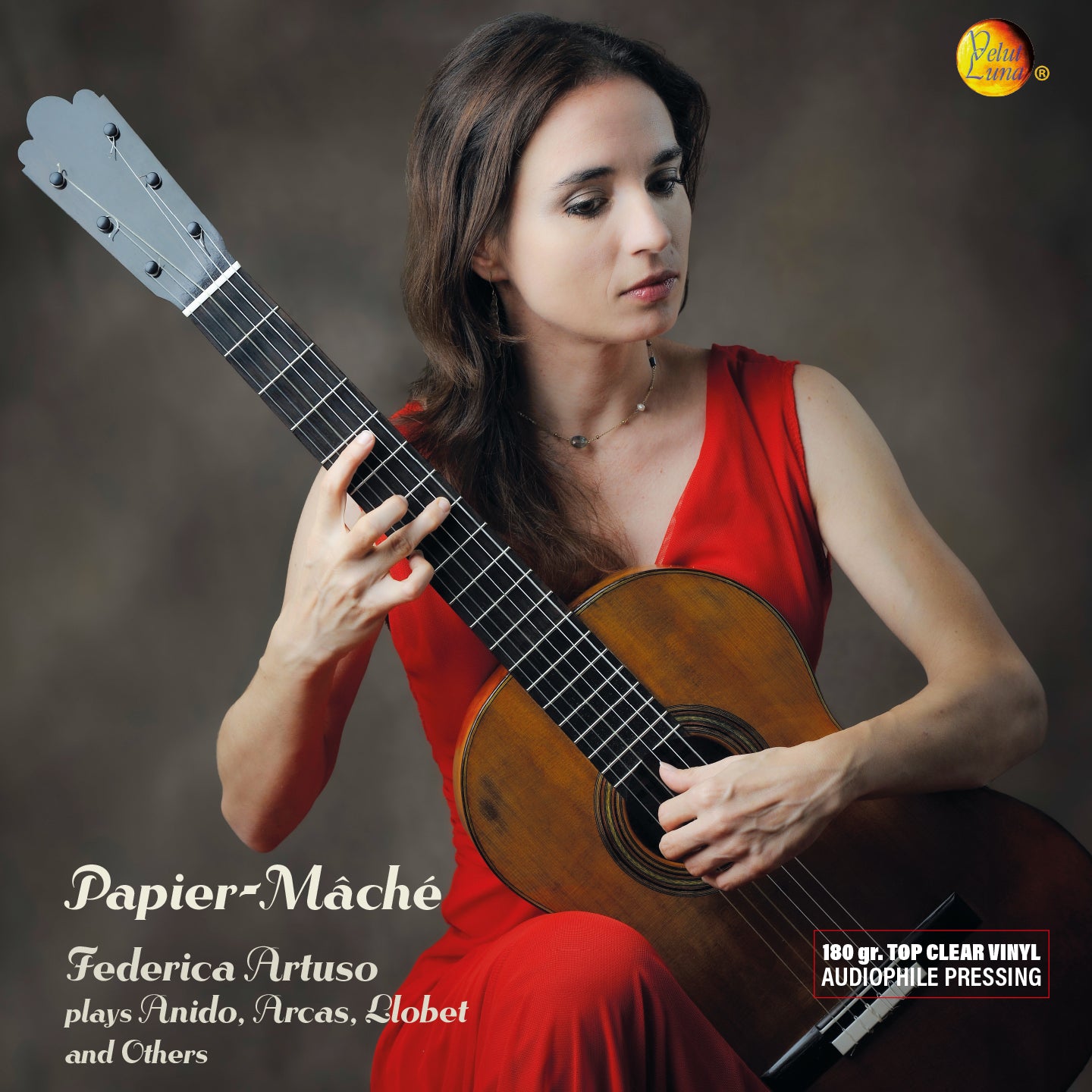
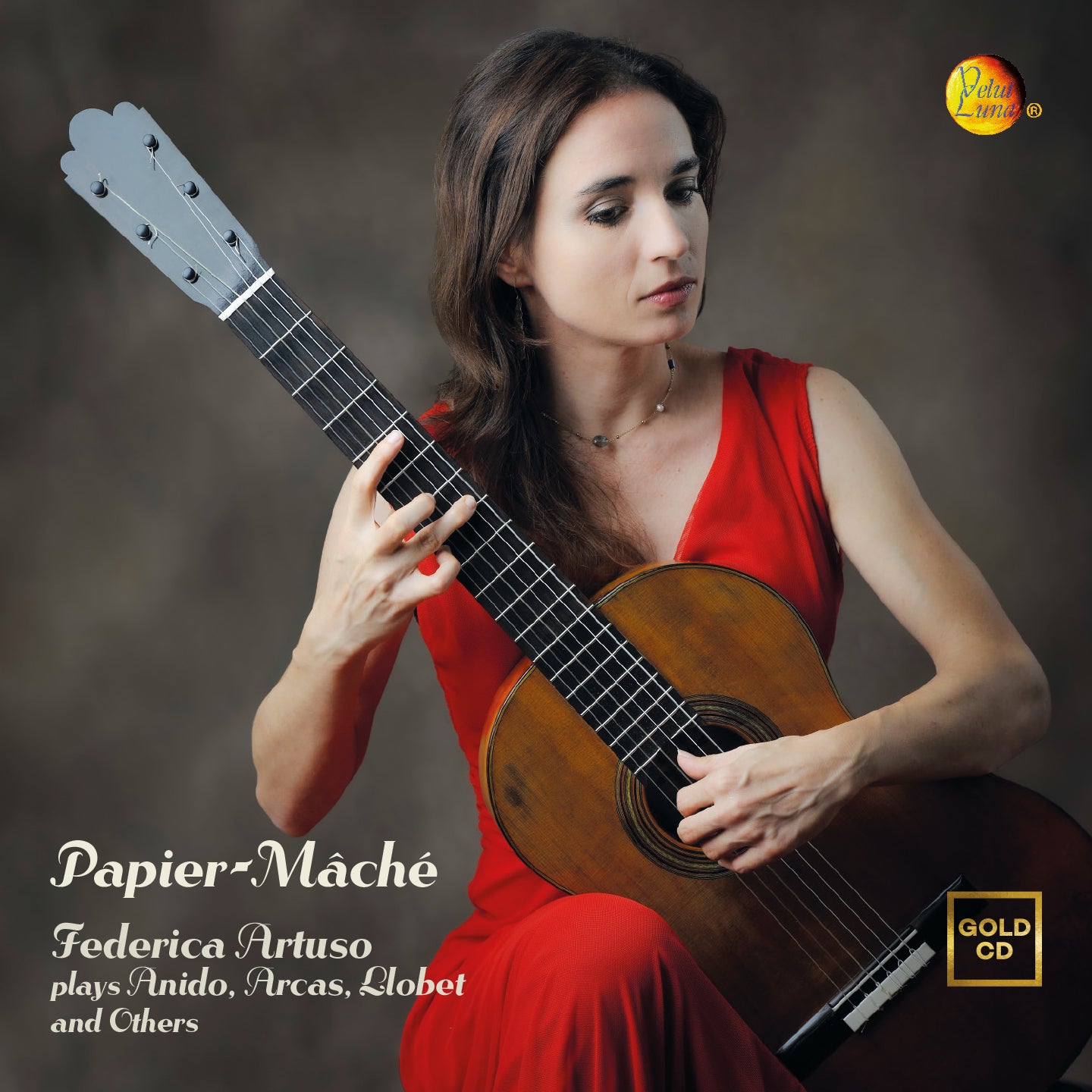
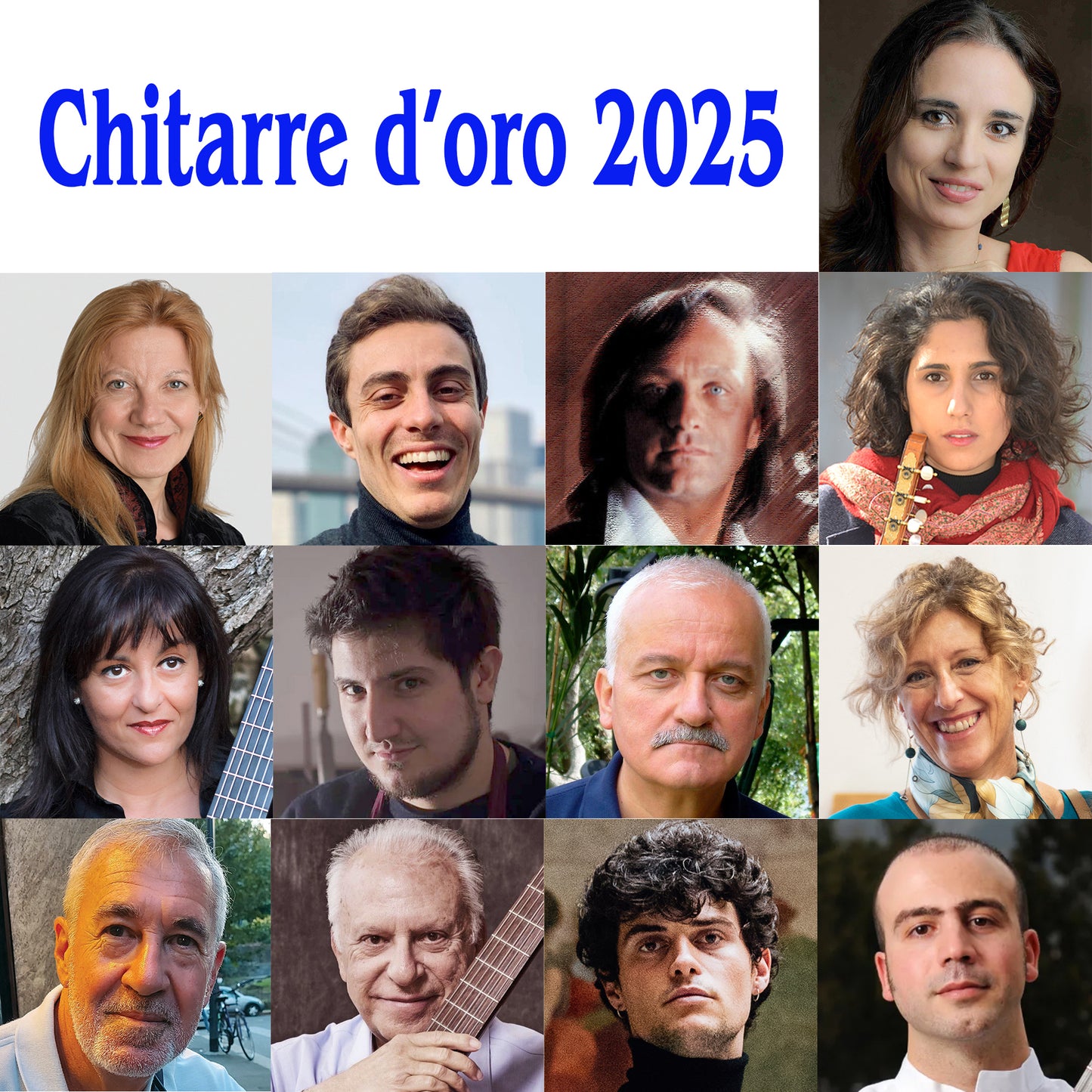
-

Spedizioni prodotti fisici
Spedizioni gratuite in Europa (UE), a partire da 4 articoli - Richiedere quatozione per i costi di spedizione per i paesi non UE
-

Consegna prodotti digitali
La consegna dei prodotti digitali avverrà direttamente sul sito e riceverai anche una email con il link per il download dei file.
-

Scrivi una recensione
Qui sopra puoi scrivere una recensione sul prodotto che hai acquistato, saremo felici di conoscere la tua opinione.

